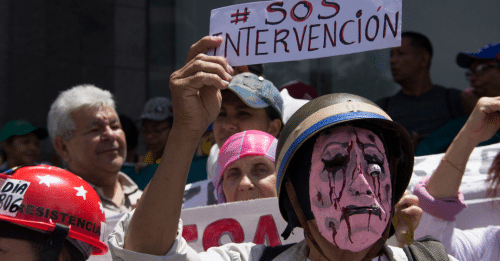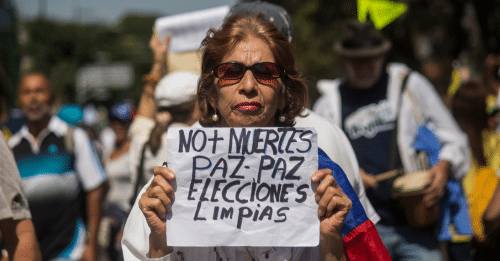The ‘Mande’ Debate: Well-Mannered or Submissive?
In recent years, an intriguing debate has been going on: is “mande” polite, or is it a subtle form of teaching submissiveness?

First things first: I’m a “mande” girlie. That’s just how my mama raised me, even though I won’t say it’s right.
Having had the experience of interacting with people from different cultures in the classroom, there’s this one thing that always gets a strong reaction from me: when a professor addresses a student and the student responds with: “WHAT?” Or “WHAT’S THAT?”
I’m telling you, the reaction from me is instant. My eyes dart back to the professor, my fight or flight kicks in, and I’m almost drafting a mental apology for this person who, in my opinion, has just been particularly rude.
Of course, that never happens. The thing is, it’s not universally seen that way, right? Maybe it’s just the Mexican in me reacting based on what I’ve been taught.
“Se dice mande,” my mom would correct me if I responded with any other answer to her calls like, “Qué? Qué pasó? Eh? Mm?”
“Se dice mande!” Apologies would follow, and naturally, I’d switch to the “mande” to continue our chat, otherwise, a flying chancla might have been my fate.
In recent years, an intriguing debate has surfaced: is “mande” polite, or is it a subtle form of teaching submissiveness?
In a culture that places immense value on respecting our elders, it’s unsurprising that “mande” has been deeply instilled in us from a young age. We say it out of respect. Yet, it still amuses me how I react to someone not using it. My immediate response is to be on guard, as if I’m bracing for someone to become angry or reprimand them. That’s rooted in my upbringing, a conditioned reflex.
Where does the term “mande come from?
To trace the roots of “mande,” we need to explore Mexico’s colonial past. When the Spanish colonized Mexico in the 16th century, they introduced not only their religion and administration but also their language, customs, and societal norms. The indigenous populations were subjugated and served the Spanish rulers.
It is in this backdrop that “mande” is believed to have been born. Directly translated, “mande” means “order me” or “command me.” The indigenous or lower-class people were expected to reply with “mande” when addressed by Spanish rulers, signaling their readiness to obey. Over time, this phrase permeated the common vernacular, evolving into a way for Mexicans to say, “Pardon?” or “Excuse me?”.
For many, especially older generations, saying “mande” is akin to “please” and “thank you.” They see it as a sign of respect, especially towards elders or authority figures. However, many believe it’s a colonial relic, symbolizing the historical subjugation of the Mexican people. Using “mande,” they argue, maintains the power dynamics of colonial times, subtly promoting submission.
This debate is so potent, it’s even become a marketing strategy. Ever seen the Corona “Yo Mando” campaign?

Corona wants Mexicans to transition from “mande” to “mando.” It’s a bold move, but will it stick?
Language is dynamic. It changes and evolves, reflecting shifts in societal values and understanding. Take the “Latine/Latinx” debacle, for example. Whether you like either of the terms, actually use them, or feel so strongly against them you need to comment on every social media post using them with a flurry of insults, the terms exist. The terms are used by some, or by many. And they are here to stay.
Similarly, with “mande,” there’s no definitive answer. With the rise of decolonial movements and a broader awareness of historical contexts, there’s been a noticeable shift in how younger generations approach the term. Many choose to opt for neutral alternatives like “Qué?” “Qué pasó?” “Sí?” which are all perfectly valid. If you value “mande” as polite, “Dime?” or “Diga?” can be just as courteous.
This is not just an attempt to break away from colonial ties but also a part of the larger global trend where societies are reflecting on and challenging their historical and cultural baggage.
So, is saying “mande” wrong?
Here’s a hot take: there’s no right or wrong way to express oneself (provided you aren’t being hurtful or discriminatory to anyone), and I’m certainly not here to tell you what is right or what is wrong. What is important is that we challenge and question our language, our words, and the way we express ourselves and interact with the world, because language has been around for ages and, well, times change.
It’s great that we’re even having this debate, and it’s great that many of us are now taking a pause to ponder which word better suits us – and that’s the beauty of the Spanish language, and any language, really. It’s also the beauty of our choice to participate in the changing of norms that no longer match the times.




